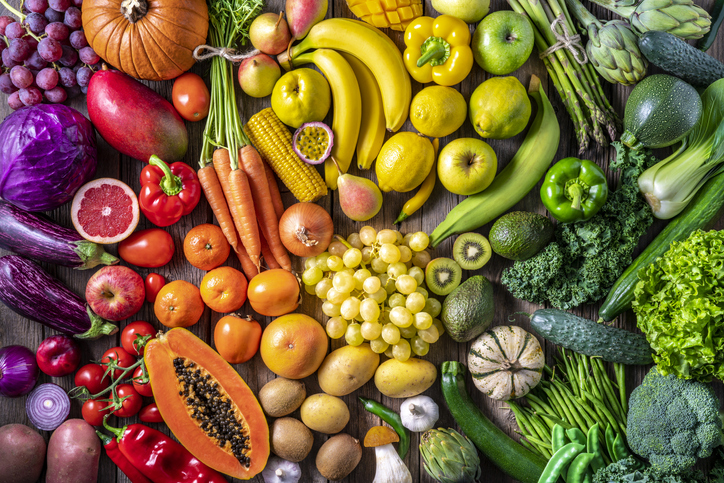
What are they and how do they benefit overall health?
Many patients and cancer survivors are advised that eating more fruits and vegetables is healthy, but why is this? Fruits, vegetables and other plant foods are full of fiber, nutrients, antioxidants and phytochemicals that are beneficial to overall health.
What are antioxidants?
Antioxidants are molecules that protect cells from damage by neutralizing free radicals. Free radicals are unstable molecules produced by normal metabolic processes and from environmental exposure, such as smoking and pollution. Excessive production of free radicals can promote cell damage and disease, including cancer. Antioxidants act as protection for cells. The body generates antioxidants, and they can also be gained from eating plant foods, like fruits and vegetables.
What are phytochemicals?
Phytochemicals are bioactive compounds naturally found in plants. Over 10,000 types have been identified. Phytochemicals are responsible for the pigment, odor and taste of plants and act as a defense for plants against fungi, insects and disease. Phytochemicals have a variety of positive impacts on human health, including antioxidant activity, reduced inflammation and anti-cancer effects.
How can you increase the intake of antioxidants and phytochemicals?
Eating a plant-based diet with a variety of colorful foods, including vegetables, fruit, nuts, seeds, whole grains, herbs and spices increases the body’s intake of antioxidants and phytochemicals. It is always best to get nutrients from food rather than a supplement.
The American Institute for Cancer Research (AICR) and National Cancer Institute do not recommend relying on supplements for cancer prevention. There may be potential for harm with dietary supplements. For example, in 2022, the US Preventive Services Task Force (an independent panel that makes evidence-based recommendations about disease prevention) recommended NOT taking beta-carotene supplements to prevent cancer based on evidence from studies linking beta-carotene supplement intake with increased risk of lung cancer.
Enjoy a variety of colorful plant foods to get more phytochemicals and antioxidants!
AICR Recommendations
To reduce the risk of cancer and cancer recurrence the AICR recommends a plant-based diet (aim to fill two-thirds of the plate with plant-based food) and to limit the intake of red meat, added sugars and ultra-processed foods. Visit aicr.org for more information and recipes.
Examples of phytochemicals and food sources by color:
| What these foods contain | Examples of foods | |
| Red | Carotenoids, such as lycopene | Strawberries, cranberries, red peppers and watermelon |
| Orange & Yellow | Beta-carotene | Carrots, sweet potatoes, cantaloupe, corn, mangoes, pumpkin and apricots |
| Green | Sulforaphane, isothiocyanates and indoles | Spinach, broccoli, kale, cabbage, Brussels sprouts, green tea, mint, rosemary, thyme and basil |
| Blue and Purple | Anthocyanins | Blueberries, blackberries, concord grapes, eggplant, prunes, purple cabbage and lavender |
| White and Brown | Allicin and quercetin: onions | Garlic, apples, cauliflower, parsnips and mushrooms |
References:
- Coble Voss, A., et al. Oncology Nutrition for Clinical Practice. 2nd ed. Chicago, IL: Academy of Nutrition and Dietetics, 2021.
- American Institute for Cancer Research, and World Cancer Research Fund International. Cancer Prevention Recommendations. World Cancer Research Fund/American Institute for Cancer Research. Recommendations and Public Health and Policy Implications. 2018.
- National Cancer Institute. "Antioxidants and Cancer Prevention." Updated February 6, 2017. https://www.cancer.gov/about-cancer/causes-prevention/risk/diet/antioxidants-fact-sheet
- George, B. P., et al. "Antioxidants." Antioxidants 10 (2021): 1455.

